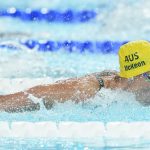Australia had an international order of 3.8 million doses, but this could be delayed or abandoned all together amid intensifying vaccine wars, The Australian reports.Overnight, the EU tightened its rules on COVID-19 vaccine exports, making authorisations contingent on destination countries behaving “fairly” in return — particularly vaccine —producing ones.Officials said that, under the revised vaccine export rules, the commission would weigh how needy countries are, in terms of infection rates and how many vaccines they have, as well as how readily they export doses to the EU.“Open roads should run in both directions,” commission chief Ursula von der Leyen said.“This is why the European Commission will introduce the principles of reciprocity and proportionality into the EU’s existing authorisation mechanism,” she said, referring to a vaccine export vetting scheme introduced in February.However, EU officials were adamant their vaccine export authorisation scheme was not an “export ban”.They said it did not target any country in particular — though they called out AstraZeneca for falling far short on its deliveries to Europe.AstraZeneca is “not even close” to delivering 30 million doses promised in the first three months of this year — which were already well below the 120 million they had been under contract to supply — commission Vice President Valdis Dombrovskis told a news conference.AUSTRALIA’S VACCINE GOAL ‘PATENTLY UNACHIEVABLE’The Government’s promise to vaccinate four million people against COVID-19 by April was now “patently unachievable” because there was not enough vaccine, federal health department chief Professor Brendan Murphy admits.Senate Estimates has been told the government has only been able to import 700,000 doses of the 3.8 million doses of the AstraZeneca vaccine it ordered.This means just over 300,000 Australians have been vaccinated so far.However, after 800,000 locally produced vials of AstraZeneca’s vaccine were released this week the vaccination program would now ramp up, Professor Murphy said.“The next four weeks we will see an exponential rise,” he said.However, he refused to say how many people the department now expected to be vaccinated by the end of March.National Vaccine RolloutThe government is also planning mass vaccination clinics when it gets to the third stage of the vaccine rollout, Prof Murphy said.Once the federal government finished vaccinating people in aged care homes the remaining doses of Pfizer vaccine would be given to the states to distribute through mass vaccination clinics, the department has told senate Estimates.The government has ordered 10 million doses of the Pfizer vaccine which requires just three weeks between doses whereas the AstraZeneca vaccine has a three month delay between doses. Meanwhile the department concedes it has begun the second stage of its COVID-19 vaccine rollout even though it has vaccinated only half the people in the first stage of the rollout.Aged care residents and frontline health and other workers were meant to be the first people to receive the vaccine but the Department of Health said it is now running the first two stages in parallel.This means people aged over 70 and those with chronic conditions, emergency service workers and others who are in the second stage are being vaccinated before every aged care resident has been vaccinated.The department refused to give a timeline on when it would complete the first stage of the vaccination telling Senate Estimates because there were new aged care residents and workers every day it might never end.Under fire for causing a phone meltdown in GP practices when it announced the names of the first 1,000 clinics dispensing the vaccine the department said it had notified GPs the vaccine booking system was going live.FIRST BATCHES OF AUSSIE-MADE ASTRAZENECA CLEAREDThe Therapeutic Goods Administration approved batches of the Melbourne AstraZeneca vaccine on Tuesday night, kicking off Australia’s first locally made COVID-19 vaccine.More than 830,000 doses were cleared after the TGA approved the release of the first four batches.The Australian-made batches have been tested to guarantee they were free of any contaminants and had “exactly the same composition and performance as the overseas-manufactured vaccine, the same quality”, according to a statement from the TGA.The approval is a “major step in Australia’s response to the COVID-19 pandemic”, the TGA said.The internationally-produced AstraZeneca vaccine was approved last week but local production will speed up Australia’s vaccine rollout, which has been criticised for being slow and vulnerable to bans from the European Union.In the coming months, 50 million doses of AstraZeneca vaccine will be made in Broadmeadows and distributed into vials at Parkville.Each batch will be tested before being released.When you can get the COVID vaccine?It comes as officials remained confident supply would continue to expand in the coming weeks.“We’ve been encouraged by the 4000 GPs who have now received vaccination approval, which will come online as vaccine supplies increase to 400,000 doses over the coming weeks,” deputy chief medical officer Michael Kidd said. “The government had initially hoped at least 2000 practices would participate and we are delighted this has grown to over 4000.”According to a report in The Australian, Sydney GP, Nicole Fogarty, said her clinic was “ready and raring” for the vaccine rollout to begin at 9am on Monday with almost 1000 patients booked to receive the vaccine in coming weeks.“We received our first batch of doses on Friday and we feel like we’re on target and prepared for Monday,” she told The Australian. “We were taken by surprise last week by the online booking system (HealthEngine), but we’re fortunate that we’ve got a strong IT team, so we could set up a fantastic online booking system that we can control and manage.” Dr Fogarty said the clinic was “not worried about the current levels of supply”.NED-3453-First-GPs-AstraZenecaWILD WEATHER AFFECTS ROLLOUTFurther delays are expected to COVID-19 vaccine deliveries across NSW as wild weather and heavy rainfall continues to lash the state. A natural disaster has been declared in parts of NSW as authorities prepare to begin phase 1b of the vaccine rollout Deputy chief medical officer Michael Kidd said the distributors were doing everything they could to ensure timely deliveries. “But there will be some inevitable delays due to the weather,” Professor Kidd said on Sunday. “Safety has to come first for the staff, patients and people delivering the vaccines.”Professor Kidd said the scheduled deliveries were ready to go as soon as the roads were safe and general practices were able to reopen to receive the deliveries. He was unable to provide details on the number of clinics or deliveries affected.“We have to wait and see what happens with the weather over the coming days.” But Professor Kidd said he remained confident they would meet their rollout targets under phase 1b. More than 750,000 people had already checked their eligibility via the health department’s website on Wednesday and Thursday last week. “(Monday) is an important day in the history of the pandemic in Australia,” Professor Kidd said. An extra 100 respiratory clinics have been enlisted to help doctors with the rollout and online bookings have been swamped with almost a million people logging on to the government site.Federal Minister for Health and Aged Care Greg Hunt said that was an indication of vaccine confidence. “We have been heartened by the early response that we’ve seen from the public this week,” he said. “It shows that Australians do want to be vaccinated, they want to do their part to help get us back to a COVID normal, while also protecting themselves and their loved ones.”Dr Karen Price from the Royal Australian College of General Practitioners said Friday’s round table with Prime Minister Scott Morrison “acknowledged the pain and suffering general practice had been through” to get the rollout going.“He made some commitments to developing a better forward estimate, to guarantee 12 weeks supply ahead so we can match out bookings to supply,” Dr Price said. Over the coming months, more than 4000 locations will be offering the vaccine and Mr Hunt asked for patience. “This is a marathon, not a sprint,” he said. Phase 1b will involve as many as six million people and will begin with a release of 250,000 doses next week for the general public.QUARANTINE ‘MAY BE REDUCED’Vaccinated Australians may be allowed to quarantine at home by the end of the year in a major overhaul of the system.Department of Health Secretary Brendan Murphy has indicated the rules around quarantining could change as more Australians get vaccinated.“We might think about reducing the length of quarantine or more home quarantine particularly for vaccinated people. Our risk tolerance will change over the second half of this year,” he told Sky News on Sunday.He said the blocking of vaccine supplies in Europe would not impact the October deadline to have all Australians vaccinated because the nation had always been “mostly dependent” on the domestic supply.QLD-NZ TRAVEL BUBBLE OPEN Queensland’s chief health officer has approved flights from New Zealand to resume from Saturday night.The one-way travel bubble was paused due to concerns about community transmission in New Zealand.Dr Jeannette Young said those in mandatory quarantine due to restrictions on flights from New Zealand may leave quarantine at one minute past midnight if they have a negative COVID test result.Direct passenger flights between New Zealand and Tasmania will also resume for the first time in more than 20 years. Air New Zealand announced on Friday it would run two flights a week from Auckland to Hobart, on Thursdays and Sundays, once quarantine-free travel is available.– with Melissa Iaria/NewsWire and AFPNED-3467 Travel Bubbles
Powered by WPeMatico






